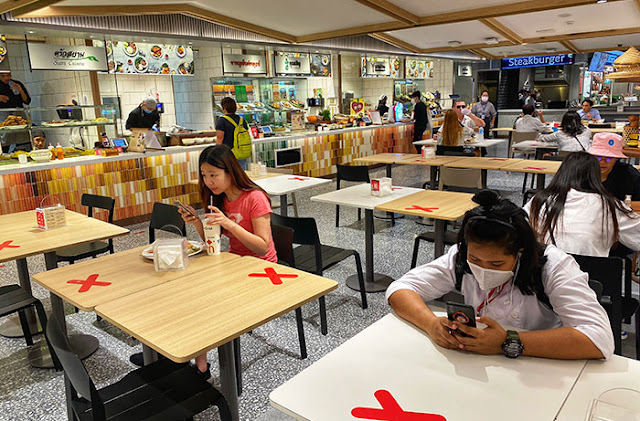People are eager to get back to their normal routines. Businesses are preparing for post-pandemic travel. Governments begin easing coronavirus restrictions.
Do you see the light at the end of the tunnel already? Possibly, but the pandemic is not over yet. So, please remain cautious even though the stay-at-home restrictions are lifted.
U.S. states are easing coronavirus restrictions
Travel restrictions and stay-at-home order were imposed to fight against the coronavirus outbreak, where non-essential businesses were paused, and residents were urged not to go out. There is a price for such measures, however.
The weekly jobless claims on May 14 topped 2.981 million, bringing the rolling total to 36.5 million during the coronavirus crisis. Today, over 18% of the U.S. working-age population do not have a job, worst since the Great Depression of the 30s.
People around the world go on anti-lockdown protests. As of May 16, Michigan and Illinois were the two states that have not lifted the stay-at-home order. Most states reopen in part or all of the following businesses: retails, food and drink, outdoor and recreation, personal care, and entertainment, either in the entire state or certain regions.
The example of California
California was the first state that imposed the stay-at-home order. On May 12, Governor Newsom announced new rules for reopening restaurants, malls, and offices in California. In general, takeout and delivery service are still highly encouraged. California outlines in its 12-page guidelines for dine-in restaurants regarding the recommended procedures about specific plans for reopening, employee training, individual control measures and screening, cleaning and disinfection protocols, physical distancing, and other considerations. Restaurants should maintain the following prevention practices (direct quotes):
· Physical distancing to the maximum extent possible.
· Use of face coverings by employees (where respiratory protection is not required) and customers/clients.
· Frequent handwashing and regular cleaning and disinfection.
· Training employees on these and other elements of the COVID-19 prevention plan.
The example of Italy
Italy was the first EU country that imposed a national lockdown due to the coronavirus outbreak. Although reopening is very likely to result in more infected cases, the country’s Prime Minister Giuseppe Conte announced that Italy was set to reopen, such as,
· Factories and parks have already reopened on May 4.
· Restaurants and shops will reopen on May 18, with strict social distancing measures.
· Catholic churches will also reopen on May 18, where strict social distancing measures are also imposed, and worshipers must wear masks. Other faiths and other religious services will also be allowed.
· Gyms, swimming pools, and sports centers will reopen on May 25.
· Traveling to and from Italy and inside the country will be allowed starting on June 3.
· Travelers entering from EU countries need not go into a two-week quarantine.
· Cinemas and theaters will reopen on June 15.
Don’t be the next tourist to get arrested for violating the new rules
It is way too early to claim that the coronavirus is over. It could take five years before the pandemic is under control, according to WHO.
While states and countries are easing the coronavirus restrictions, we should all exercise extra caution while going out or during a trip. Being a responsible global citizen, we must follow the new rules to prevent spreading the coronavirus. Ignorance will not help us stop the pandemic.
It is very disappointing to see people care less about the rules and restrictions. A case in point is a tourist from New York City violated the two-week quarantine rule in Hawaii and got arrested. I strongly urge that we all remain cautious while going out and follow the social-distancing rules with enhanced hygiene practices.
As the stay-at-home restrictions are lifted, what measures should we take to prevent spreading the coronavirus? What about the measures to protect ourselves from getting the virus?
Note: This post is also available on Multibriefs.com; The picture was downloaded from Presto.com.


Comments
Post a Comment